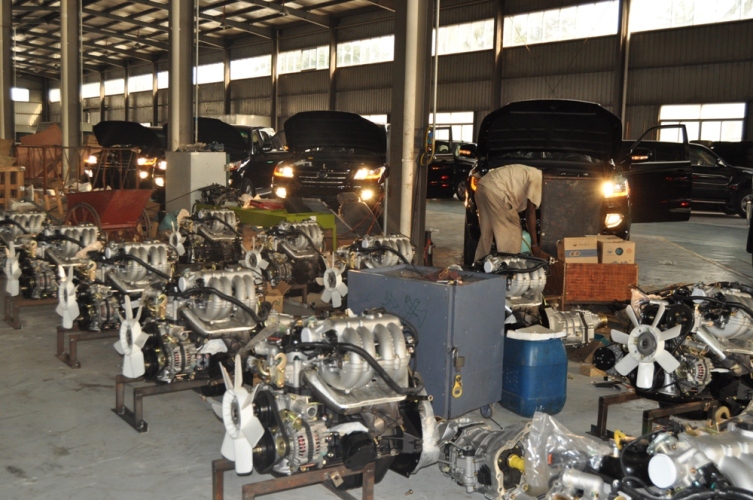- Local Automakers’ Production Capacity Drops by 97%
Activities at vehicle assembly plants across the country have nosedived as the automakers continue to experience a decline in the patronage of their products, no thanks to the biting economic recession.
A new report put together by Prof. Okey Iheduru of the Arizona State University showed that the annual capacity utilisation of the auto plants in Nigeria had dropped by 97 per cent, from 500,000 vehicles to just 15,000 vehicles.
The Chief Economist at PricewaterhouseCoopers Limited, Dr. Andrew Navin, who noted that the auto industry was still dominated by used cars imports more than two years after the introduction of a new auto policy, also said local production accounted for only one per cent of the market.
Iheduru and Navin spoke in Lagos at a symposium organised by the Lagos Chamber of Commerce and Industry, which had as its theme: ‘The Nigerian auto policy: Reality checks on the economy and the future’.
Iheduru, who gave the installed capacity for the over 40 existing auto assembly plants in the country as 500,000 cars annually, said the firms could only utilise less than three per cent of that capacity.
Although the don noted that some progress had been made following the implementation of the National Automotive Industry Development Plan in 2014, he stressed that “the substance of the policy has failed.”
“The delay in imposing the second phase of the 35 per cent tariff on imported used vehicles is adversely affecting investment in the auto assembly plants and the growth of the industry,” he stated.
Navin, in his presentation, also said the NAIDP, which was introduced to reduce the nation’s dependence on automobile imports and stimulate investment in local manufacturing, had not been able to do well as continued depreciation in the value of naira and foreign exchange crisis had led to increases in the prices of new vehicles.
“Despite increased activity in the auto industry, vehicle ownership is low (in Nigeria) compared to other African countries,” he said.
According to him, vehicle production figures for the last year showed that South Africa did 615,658 vehicles; Morocco, 288,329; Egypt, 36,000; Algeria, 20,000; and Nigeria, 3,500.
Both speakers urged the government to lead in the patronage of locally-made vehicles as enunciated in Gazette No. 24 of 1994, which compelled all tiers of government to source their vehicles locally.
“Unless the auto financing market develops, new vehicles will continue to be beyond the reach of most Nigerian who will settle for Tokunbos (used vehicles),” Iheduru said.
Navin said for Nigeria to become Africa’s automotive hub, it must address certain gaps in the industry such as improving the chances of owning a car; tighten the borders; protecting the consumers through safety and quality standards; setting up ancillary industries; and developing auxiliary industries.
The President, LCCI, Dr. Nike Akande, in her address at the event, said the sales recorded for new cars were too low for the local assembly plants to thrive and for foreign car manufacturers to be attracted to the Nigerian auto market.
She urged the government “to put plans and strategies in place to boost the demand for new cars in Nigeria through special automobile financing facilities for the middle-income earners to acquire new cars.
“There is also the need to provide the necessary infrastructure to support the steel and plastics sub-sectors, which are expected to produce various parts of vehicles. This will create jobs and tremendous multiplier effects for the economy.”
Other speakers at the forum were the Chief Commercial Officer, Dana Motors, Mr. Sandeep Malhotra; Managing Director, ABC Transport, Mr. Frank Neji; Director, Policy and Planning, NADDC. Dr. Luqman Mamudu; and Comptroller-General, Nigeria Customs Service, Col. Hameed Ali (retd).



 Naira4 weeks ago
Naira4 weeks ago


 Naira3 weeks ago
Naira3 weeks ago


 News4 weeks ago
News4 weeks ago
 Travel4 weeks ago
Travel4 weeks ago




 Naira4 weeks ago
Naira4 weeks ago


 Jobs3 weeks ago
Jobs3 weeks ago
 Naira3 weeks ago
Naira3 weeks ago


 Travel3 weeks ago
Travel3 weeks ago




















